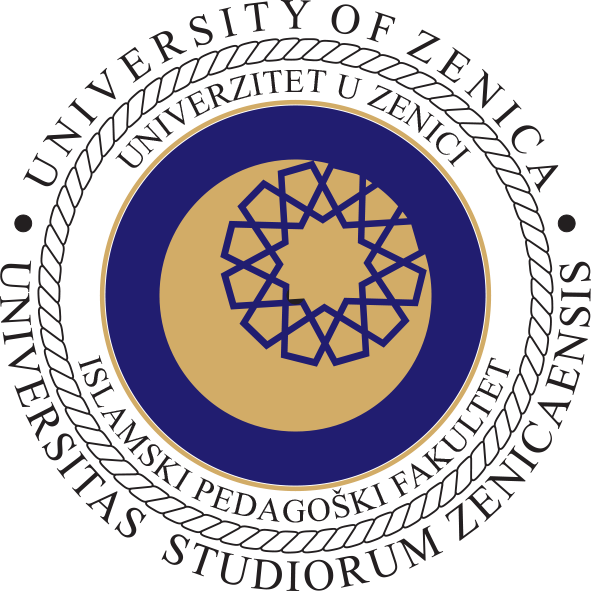NEGATIVNI TIPOVI LJUDI O KOJIMA GOVORI ČASNI KUR'AN
U radu se razmatraju negativni tipovi ljudi kojima govori Kur'an. Jedna od glavnih tema Kur'ana jeste čovjek. Kur'an govori o pozitivnim i negativnim tipovima ljudi. Na prvom mjestu na kojem se u Kur'anu spominje čovjek, spominje se da je stvoren slabim i nejakim. Prema tome, to nejako i krhko biće ima potrebu za pomoći Onoga Koji ga je stvorio, ka...
By Dženan Hasić, Mensur Valjevac
TOURISM TRAVELS IN THE REFLECTION OF EUROPEAN ISLAMIC-CULTURAL DIMENSION
Tourism is a widespread and enduring global phenomenon, driven by a variety of motives, including religion. Travel has multiple benefits, particularly in terms of an individual's spiritual progress, even when not explicitly motivated by religious purposes. The paper examines the cultural and Islamic-religion dimensions of tourist journeys while tak...
By Lejla Žunić
ODNOSNO UVRŠTAVANJE TURSKIH INFINITNIH IMENSKIH SKUPINA U SASTAVU PROŠIRENIH GLAGOLSKIH ADVERBIJALA DOPUSNOGA ZNAČENJA
U radu se analiziraju gramatičke i značenjske osobitosti turskih proširenih glagolskih adverbijala dopusnoga značenja koji se oblikuju odnosnim uvrštavanjem infinitnih imenskih skupina. Rad se sastoji od dva poglavlja. U prvome se poglavlju analiziraju kontekstualne situacije u kojima se koriste prošireni glagolski adverbijali ...
By Edina Solak, Mirza Bašić, Esma Meštrovac
RELIGIJSKOPEDAGOŠKA KONCEPTUALIZACIJA LUKMANOVIH SAVJETA
U religijskopedagoškoj perspektivi ljudsko srce (el-kalb) je centralni objekt odgojnih interesa, a njegova odgojno relevantna konstitutivna osobenost je sloboda. Budući da se autentičan i odgovoran razvoj religijske svijesti može realizirati isključivo u zoni slobode, onda je, s tog stanovišta posmatrano, moguće razumjeti religij...
By Muamer Neimarlija
PRIKAZ SLUČAJA MJERE NADZORA NAD OSTVARIVANJEM RODITELJSKOG STARANJA KAO PRILOG METODICI RADA SOCIJALNOG PEDAGOGA
Rad sadrži prikaz slučaja provođenja mjere nadzora nad ostvarivanjem roditeljskog staranja koja je jedna od mjera zasnovana u Porodičnom zakonu FBiH, dio Prava i dužnost roditelja i djece, pod-dio Zaštita prava i interesa djece, Član 125. Nadzor nad ostvarivanjem roditeljskog staranja, stav 1 do 6. Mjera nadzora se utvrđuje ukoliko su rodite...
By Eldar Ćerim, Ajdin Delić
INTENCIJSKI TAFSĪR QURʼĀNA - al-tafsīr al-maqāṣidī
Ovaj tekst razmatra intencijski tafsīr. Intencijski tafsīr (al-tafsīr al-maqāṣidī), za razliku od pravne discipline koja se bavi intencijama šarīʿata (maqāṣid al-šarīʿa) i koja tretira ajete u kojima se tretiraju fiqhska pitanja, bavi se čitanjem cijelog Qurʼāna kroz prizmu njegovih univerzalnih ciljeva (al-maqāṣid al-kulliyya), kao i...
By Dženan Hasić
KIRAETI U TEFSIRU AL-MUḤARRAR AL-WAǦĪZ IMAMA IBN ʿAṬIYYE
This article offers a comprehensive overview of the background, upbringing, and character of Imam Ibn ʿAṭiyya, one of the most distinguished scholars of Muslim al-Andalus. His education and intellectual formation were deeply influenced by a scholarly family environment and the vibrant intellectual climate of his era. The work highlights the high re...
By Hamdo Solo
SADNICA NA KRAJU SVIJETA: ISLAMSKO-EGZISTENCIJALNA ETIKA POZNATOG HADISA MUHAMMEDA, A.S.
U ovom radu analiziramo poznati hadis Allahovog Poslanika, s.a.v.s., koji glasi: "Ako nastupi Sudnji dan, a u ruci nekoga od vas je sadnica, pa ako je može posaditi prije nego što nastupi – neka je posadi." Ovaj naizgled jednostavni savjet nosi duboku simboliku moralne obaveze djelovanja bez obzira na ishod. Kroz islamsku teološ...
By Esmir Halilović
KASIDA MEHMEDA HANDŽIĆA O GAZI HUSREV-BEGU
Ovaj rad analizira kasidu Mehmeda Handžića posvećenu Gazi Husrev-begu, predstavljajući je kao književno i kulturno djelo u okviru orijentalno-islamske književnosti. Kasida je oblikovana u duhu klasične arapske poetske tradicije, prilagođene osmanskom i bošnjačkom kontekstu, te se odlikuje trodijelnom strukturom i bogatim stilskim sredstvima....
By Semir Rebrinja
FAKTORI RANOG GOVORNO-JEZIČKOG RAZVOJA DJECE
Cilj ovog rada bio je istražiti mišljenja stručnjaka o faktorima koji utječu na rani govorno-jezički razvoj, s fokusom na one koji djeluju izvana – porodicu, vrtić, medije i dvojezičnost. Istraživanje je zasnovano na kvalitativnom pristupu i provedeno je putem polustrukturiranih intervjua sa tri eksperta: lingvistom, metodičarem ranog ...
By Delila Ramić, Amina Pehlić



